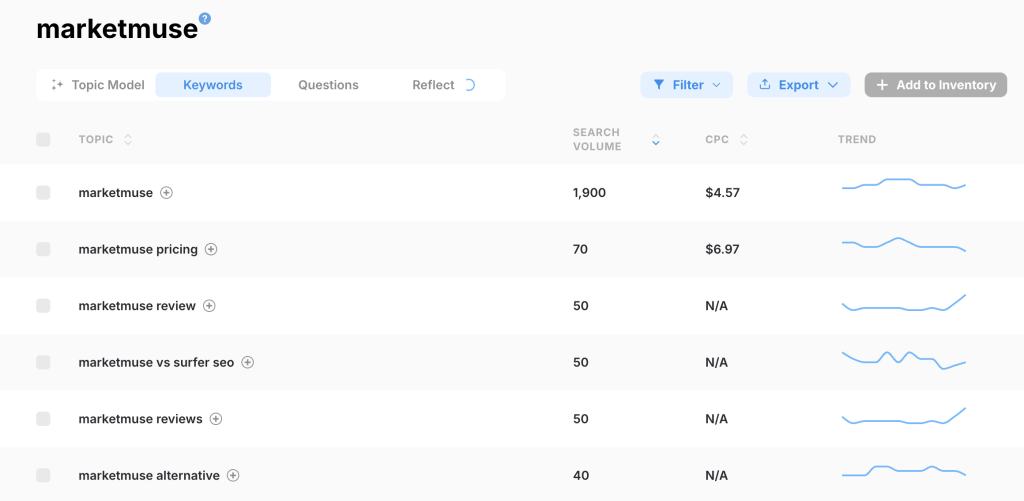Growth marketers may bring a unique element of experience and expertise to the table, but without the right tools, they can only go so far. A good growth marketing strategy is both comprehensive and complex. It considers paid, earned, and owned content, all of which are improved when you use the right tools.
These tools provide data, structure, and insights. They improve efficiencies through marketing automation and can even inspire future promotional frameworks, strategies, and initiatives.
If you’re unsure what growth marketing tools you need to incorporate into your strategy, you’re not alone. There are a lot of tools out there. In this article, we’ve divided growth marketing into eight key categories and provided marketing tool suggestions for each activity.
Let’s dive in.
The first step in growth marketing is establishing a solid foundation for your site. This paves the way for smooth progress as your digital marketing gains momentum.
Common technical marketing issues include addressing slow load time, complicated navigation, and poor redirects. These quite yet critical marketing components may be out of sight, but they should never be out of mind. They can hurt your user experience and hamper your marketing efforts.
There are tools that can help. Google Search Console (GSC) is the most important of these, as it provides a detailed analysis of the back-end of your website. You can also use PageSpeed Insights for loading speed analysis while an SEO tool like SEMRush or Ahrefs can do third-party site audits and can give you data regarding search engine optimization across your site.
Content marketing is another major building block of a solid growth marketing strategy. This is the owned part of your marketing, and it should consist of targeted, industry-focused, brand-specific content.
The question is, how do you know your content is performing? Is it top, middle, or bottom-funnel content? Is your content thin or cannibalizing itself? What pieces do you need to optimize or even delete?
Google Search Console can help with this, as can Google Analytics 4. The former focuses on the search engine side of things, while Google Analytics 4 provides user insights. Once again, SEO tools are important in building strong, optimized content. AI-powered platforms like MarketMuse can also help with the planning and optimization process. Other tools like SEOMonitor can help highlight keyword opportunities and cannibalization issues.

The 2024 Google Search Algorithm Documentation Leak revealed that backlinks are still an essential part of a growth marketing strategy. How many backlinks do you have? How do your backlinks stack up against the competition? Where can you get more backlinks?
Backlink tools are a tricky one. SEO tools mentioned previously like Ahrefs or SEMRush and Google Search Console remain good starting points here. They can give you the raw backlink data. If you don’t know how to make head or tails out of the information, growth marketing agencies like Relevance can help you draw comparisons, measure results against marketing benchmarks, and discover new backlink opportunities.
Paid marketing is a growth hacking tool that helps you supercharge a growth marketing plan. To work, though, you need to know what keywords to target and how to run your paid campaigns.
Ahrefs has a free keyword planning tool that can help you get an idea of what keywords you could incorporate into a paid campaign. Moz offers a free version of its platform for limited keyword research, as well. Google Ads is the platform you want when it comes time to set everything in motion and orchestrate your paid marketing campaign.
Social media is another critical area of off-site marketing. Social media marketing allows you to connect and engage with your target audience, increasing awareness, developing trust, and building social proof around your brand.
The issue with social media marketing is that it’s overwhelming, which is why most tools here focus on management and efficiency. Social media management tools like Hootsuite, Sprout, and Buffer allow you to schedule and post to accounts from a single dashboard. Platforms like Canva and Unsplash make it much easier to create professional posts, too.

Email marketing has always been important. Eblasts can quickly inform your followers about important events and opportunities. Email funnels can nurture leads. Drip campaigns can spread content you’ve published elsewhere.
In an SEO world that is always in flux, a marketing channel like this that connects directly to an opt-in audience is invaluable. Even so, if you want your recipients to click and your emails to avoid the spam folder, you want to maintain a solid email marketing strategy.
There are a number of tools that can help with this. ConvertKit makes email creation easy. Mixmax makes scheduling a breeze. ActiveCampaign empowers you through cutting-edge email automation options.
You can get all of the traffic in the world, but if it doesn’t lead to the right actions, it won’t matter. Conversions can be a number of things, from making a purchase to filling out a form. Regardless, you want to know if your growth marketing efforts are actually bearing fruit or not.
Tools like Convert can help you conduct A/B testing to see what options generate more leads. Optimizely gives you key conversion-related insights into the entire marketing lifecycle. This helps you gauge if your customer acquisition process is leading to consumers engaging in the customer journey.
Finally, for proper growth marketing to work over the long term, growth marketers need data. Short-term data can reveal if a specific marketing effort is working. Long-term data allows you to track how your site, paid campaigns, SEO content, and other activities are playing out over time.
Google comes up strong here again. Google Analytics 4 and Google Search Console can give you a ton of data to work with. In addition, Screaming Frog can crawl your site to conduct audits and provide data-rich feedback. Conductor is another analytics-based tool that hones in on SEO insights to maximize performance.
Every successful growth marketer has a suite of tools to back them up. The key is finding the right platforms for your needs.
If you’re unsure what tools can supercharge your growth marketing plans, we would love to connect for a free strategy session. Together, we can find the tools that can help you align your marketing efforts with your brand’s vision and goal, giving you and your team the best chance at marketing success.